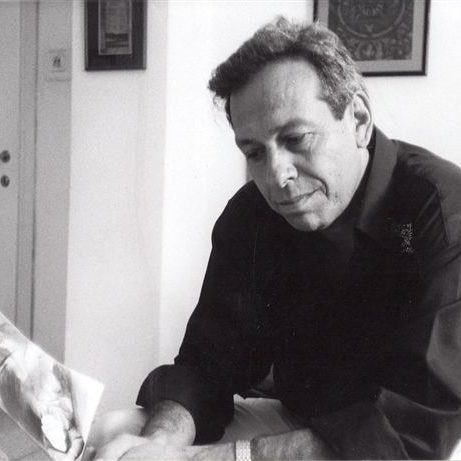Forgiveness is an emotional mental mechanism that is most important for cleansing the soul, relieving stress, improving mental health, and correcting our relationship with the environment. An emotional mechanism helps us bring us closer to others and ourselves.
Sometimes this mechanism does not work, is not developed, or gets stuck because of; Serious emotional impairments in our self that are not always related to the present issue are often relics from times when our ego was still weak, fragile, and suffering from fears of ionization or breakdown!
What causes these situations of inability to forgive and how to free yourself, overcome, heal ourselves, and learn to forgive.
All of us as human beings develop with "I" in the center; it is inherent in us from our birth. It is "I" who is supposed to be strong, functioning, and relatively controlling our complexes. It is I who also gives us self-respect and reasonable pride, but sometimes and especially if he is not safe enough, guarded over honor and pride and demands payment for any injury we get.
Like everything that grew up that is vulnerable and fragile at the beginning, so too is "I, who I am from birth and whose growth is accompanied by frustrations is usually with some degree of vulnerability and ability and at times a desire to hurt others, sometimes to get revenge in part to maintain our pride and sense of value Our imaginary.
However, we are all human beings, we were born with certain humanity, with feelings, sensitivities, and compassion, and we are able and learn with our adolescence how to forgive. We acquire skills and tools in how we can look at vulnerability from different perspectives, how we will get a measure of what is happening between others, and us and how we can emerge from ourselves and see things from the perspective of the other. We will gain knowledge of how we will succeed in seeing what happened a little on the side so that we will be allowed to forgive ourselves.
Forgiveness in all its emotional aspects is part of human nature and is therefore inherent in our generic program.
Forgiveness requires us to be able to relate empathy to wounds to frustrations, to our disappointments and sometimes to our humiliations and failures.
When and why people cannot forgive, not others and sometimes not themselves,? Why sometimes this mechanism does not work and is not normal during life. One can also ask what the role of such forgiveness in the human psyche is, and what does it serve for the human psyche or does it protect it.
If the ego is the mental organ with which we function, control, adjust, and build our backbone to serve our ability to adapt, to function. If the ego is the mental organ that helps shape our personality, connect us to ourselves and in advanced stages of life also help us in our mental development, then its centrality is enormous, and some of this centrality also entails maintaining its dignity, visibility, and completeness in the eyes of others. Our image, the persona becomes important! So when the ego grows and develops when it is still soft and relatively weak compared to others, it will tend to use any means to capture attention, centrality, control, prominence, and durability. It will do so through negative, positive means, and revenge and forgiveness will be common, even between people and between societies and peoples.
From the developmental story emerges that the young man, young and soft in years, does not have the privilege to go out of himself to forgive and forgive. The fragile ego must mobilize many of its resources for itself and have compassion, forgiveness, and vision of the other. Sometimes its patterns of survival in adversity do not allow it.
When the young ego had many emotional vulnerabilities in childhood, such as lack of space, ambiguity, lack of consideration, states of exploitation or alternation of trampling, disregard, and apology without apology: he grew up unbalanced, self-centered, , Armor and inability to see the other and forgive.
In situations of injury and lack of reference that will be restored in life and if only slightly, he will retain a grudge, he will tend to sanctify his vulnerability, his anger, and his rage.
Sometimes he will learn to gain an important position precisely through the situation of "not forgiving." That is, in this situation, he now has a kind of superiority in front of the environment, a sense of false priority that he will not give up too quickly. He needs revenge, a need to see the other suffer, even to savor the suffering of the other. Sometimes he will tend to self-indulge in pleasure and embrace it. When a person acquires this pleasure of superiority over the other or of the dangers of forgiveness, he will distance himself from him by requiring him to give up, to feel pain, to require a certain kind of maturity, to take responsibility or to give up for something that is not at first clear.
There is a certain lack of understanding in the person that forgiveness, in fact, after the pain of giving up, brings with it an unfamiliar retaliation, something new. It can expand the soul, purify, calm, and enable continued development and lack of attachment.
People, who cannot forgive, do not want to forgive, do not know, or are afraid, will usually remain emotionally stuck with themselves and others. Sometimes unforgivable people are like sitting on a pile of junk and guarding it as a treasure!
Sometimes they feel and develop it in the self-narration that forgiveness does not reflect a kind of integrity of themselves! The "unforgivable" becomes a kind of value, protecting my personality and me. These people are not aware of the rigidity that develops, sometimes the closeness, the justifications that accompany and diminish.
Of course, it is necessary to remember that sometimes the lack of forgiveness protects us as a necessary defense until the personality becomes stronger and can be released; sometimes there is fear of pain, breakdown or collapse, sometimes a strong sense of helplessness that the personality cannot stand.
Moreover, of course, we will remember that there are things that may not be forgiven.
It allows you to move on and progress to other things and opens the possibility of closeness to others and connecting to the positive elements towards the offending object that have been pushed away and forgotten by man.
People who do not learn to forgive, lack this mechanism or are defective may find themselves trapped inside themselves and at times, a significant part of their energy can be booked and unavailable. They will tend to be too busy with themselves, with their self-righteousness and left with negative mental residues that might never be taken.
Sometimes the inability to forgive others is also due to the lack of self-forgiveness for what happened and the vengeful, alienating, alienating detachment covers hidden guilt even from one's consciousness.
The various mannerisms here create detachment and self-entanglement that closes and distances the person who is incapable of forgiving himself or another.
The concentration of energy in maintaining and re-engaging takes away different energies, and if the burden of injury, the anger, and the insult is great, it becomes tired, drained and just in time, but in fact, it can remain lonely, empty and dark in its feelings for other parts of its life.
There is no doubt that the inability to forgive is a disadvantage; it is a problem for the person himself and his environment, a limitation that creates many other problems that will not be solved.
If the person is attentive to what is happening around him then many times in his synchronous life: the simultaneity that is not coincidental, brings him possibilities of further thought and opportunity for forgiveness or at least for testing if he may already be elsewhere and can forgive without humiliation.
Often as a therapist, I see this trap of inability to forgive exists in a difficult way between parents and children or between siblings within the same family. It turns out that it is precise with the close people, the patterns of anger that the disengagement, the unforgivable, become rigid, determined, and uncompromising extremists.
People are not sufficiently aware of how much the situation pushes them, their souls. They do not know how much energy will be released to the extent that giving up and trying to reach forgiveness is worthwhile for the person himself. Society and culture have also created possibilities of forgiveness rituals that can be exploited for those situations.
A person who feels that he cannot forgive is important to think first that there is a mental problem in the ability to forgive himself and then think about what he is saving and what he avoids and how much guilt exists under that unforgivable.
It is important that he try to understand what he is afraid of, what may be lost, and whether, on what position of power, the mother punishes the other and at the same time punishes himself.
If a person feels that, he needs help to understand his stubbornness or to find out if he has any mental problem with the ability to forgive.
Asking for forgiveness and forgiveness are two sides of the same coin. A valuable coin that we have received as human beings is a coin that can free us from stuck emotional states and focus too heavily on our ego for distant and distant reasons.

